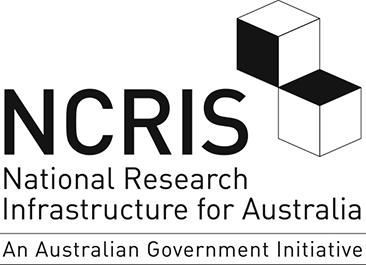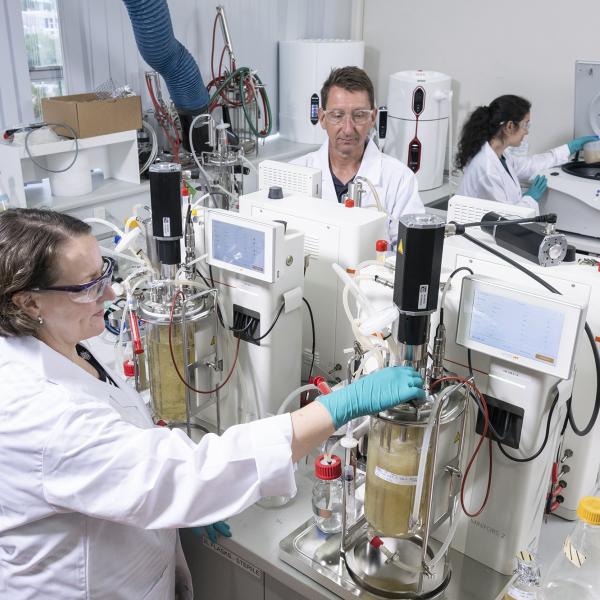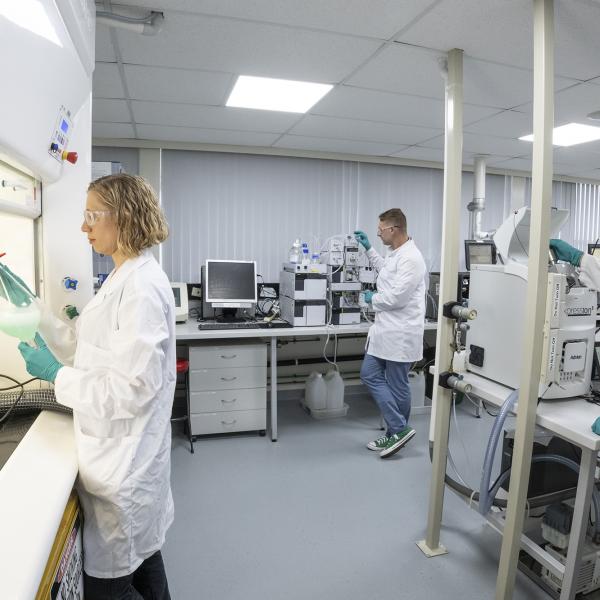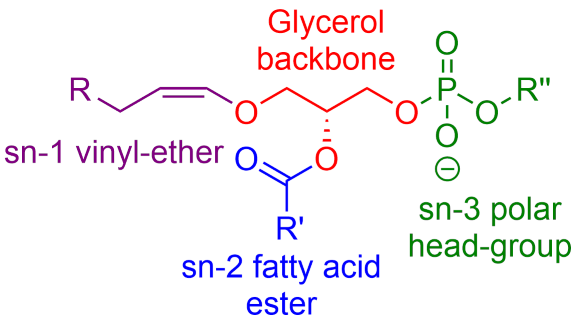
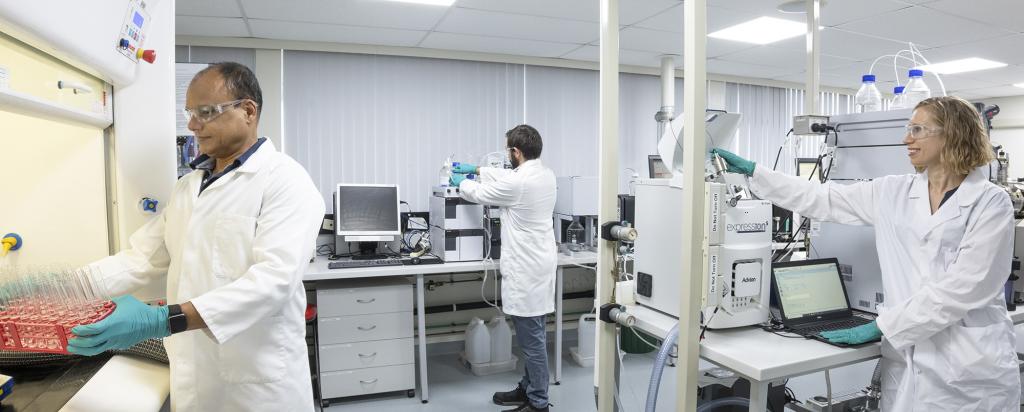
News and highlights
Recent highlights
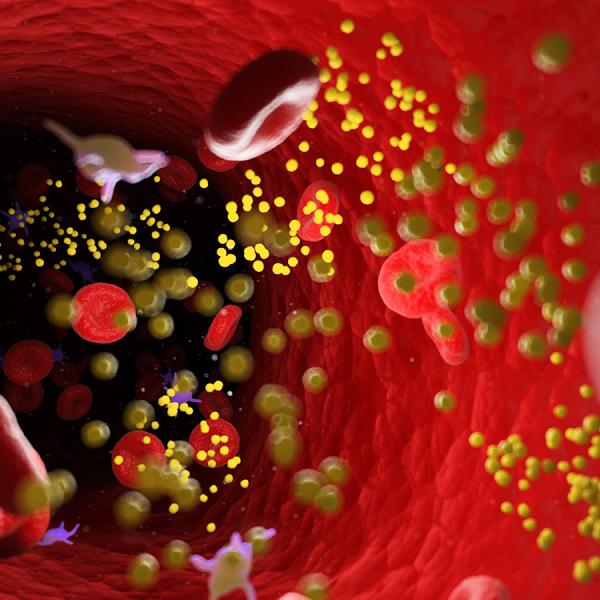
Deuterated Plasmalogens: A New Class of Labelled Lipids from the NDF
The National Deuteration Facility has recently developed a successful synthetic route to access deuterium labelled plasmalogens, which are an important class of lipid for investigating lipid biology and implications for numerous diseases.
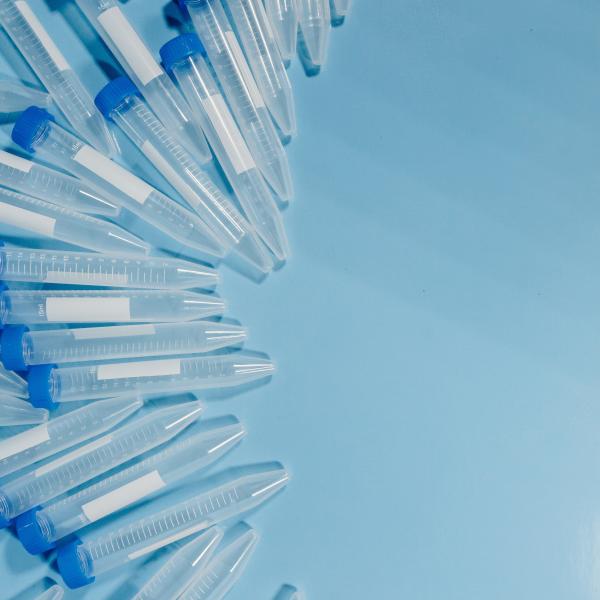
Studies in selective microbial deuteration for chiral molecules
This NDF-led study investigated development of potential cost-effective methods for reductive microbial deuteration (utilising yeast strains) to produce crucial chiral building blocks for medicinal and analytical applications with a high degree of isotopic labelling and enantioselectivity.Combining synthetic organic chemistry and microbes to perform enzymatic transformations allowed the enantioselective synthesis of important chiral molecules.

Find out more
2025 NDF Product Catalogue released
The National Deuteration Facility (NDF) has released their 2025 Product Catalogue, now containing almost 300 unique deuterated molecules.
Find out more 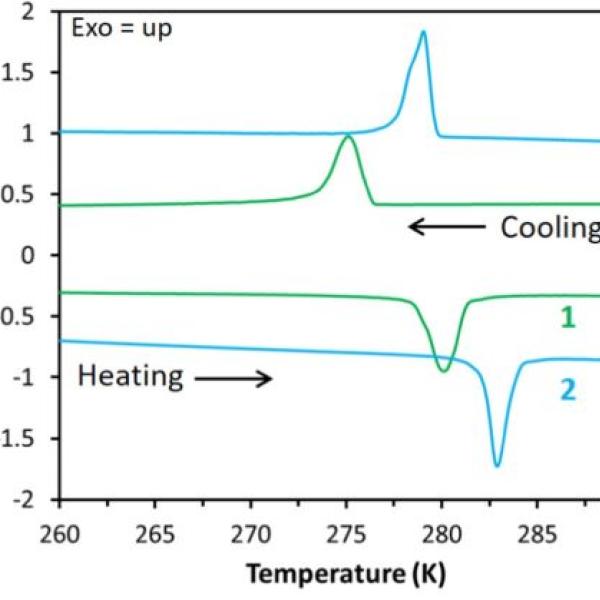
Manipulating a Thermosalient Crystal Using Selective Deuteration
Dr Alexander Angeloski of the National Deuteration Facility led a study published in JACS that demonstrated deuteration can manipulate the properties of a crystal that converts heat into mechanical motion.
Find out more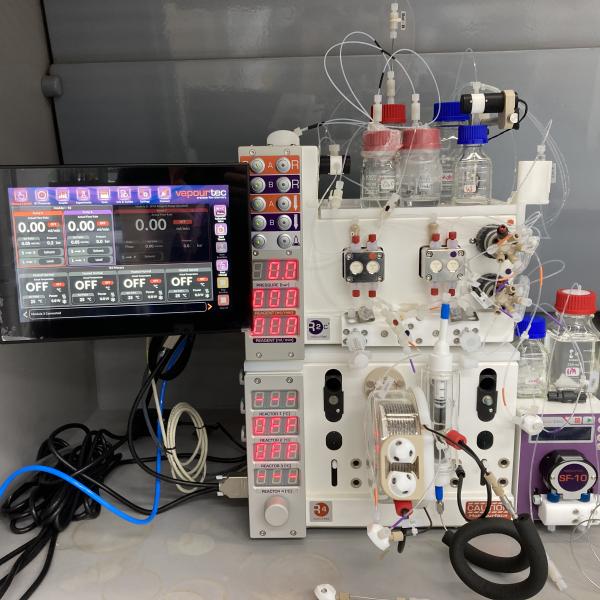
New flow chemistry capability to enhance NDF production capacity
The National Deuteration Facility has recently acquired a Vapourtec flow reactor integrates real-time monitoring, streamlined processing, and flexible productivity, thereby advancing the field of flow-based deuteration. These capabilities not only facilitate the adaptation of established batch processes to continuous flow for multigram-scale synthesis but also encourage the exploration of novel deuteration methodologies. This work is supported by NCRIS Uplift funding received in 2023 Phase 2 funding for expansion of existing capabilities and development of new capabilities.
Find out more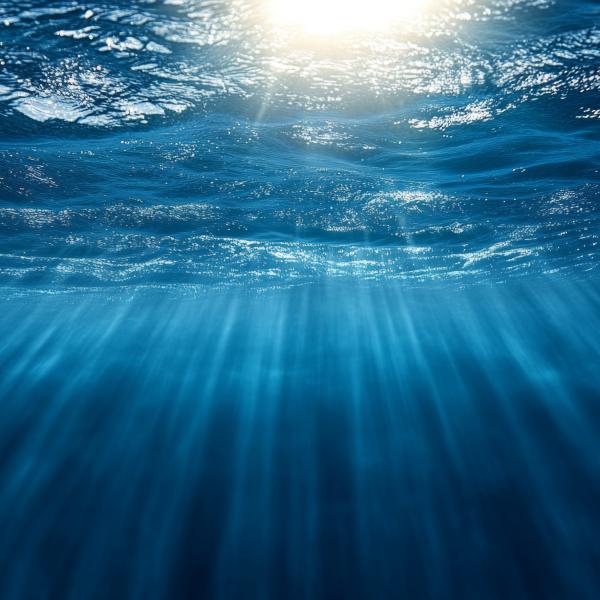
Enhancing the oxidative stability of squalene
The National Deuteration Facility has demonstrated the potential of deuteration for stabilisation of industrially relevant materials. An important proof of concept study showcases how the substitution of hydrogen atoms with the stable isotope deuterium can stabilise key cosmetic and medicinal product components.
Find out more
Voucher scheme for accelerating biomedical research
To encourage access to a diverse range of NCRIS supported Australian translational medical research capabilities, Therapeutic Innovation Australia (TIA) has developed the Pipeline Accelerator, a competitive voucher-style scheme that can subsidise the cost of access to a full range of advanced capabilities. In the Pipeline Accelerator 2024-2025 Round 2, TIA is partnering with Phenomics Australia, Bioplatforms Australia and ANSTO’s National Deuteration Facility (NDF) to expand the list of translation expertise necessary for the discovery and translation of medical research.
Find out moreDGet! An open source deuteration calculator for mass spectrometry data
Alexander Angeloski from the National Deuteration Facility and Thomas Lockwood from the University of Technology Sydney have developed a new software tool to enable the routine determination of deuterium content in deuterated molecules using mass spectrometry data.
DGet! is the first readily available application to determine the deuterium content of small molecules using mass spectra. DGet! is freely available at https://dget.app.
Find out more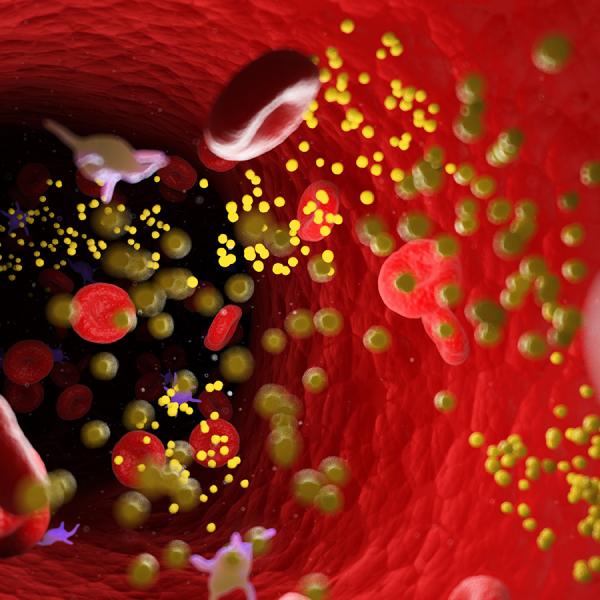
Major study identifies a potential drug target for lowering cholesterol
ANSTO has contributed to a major study identifying a potential drug target for lowering blood cholesterol that has been published in the prestigious journal Science.
The international study was enabled by two of Australia’s national research infrastructure facilities, the National Deuteration Facility and Microscopy Australia, both funded by NCRIS.
Find out more
Acknowledgements
The National Deuteration Facility is partly supported by the National Collaborative Research Infrastructure Strategy – an initiative of the Australian Government.
